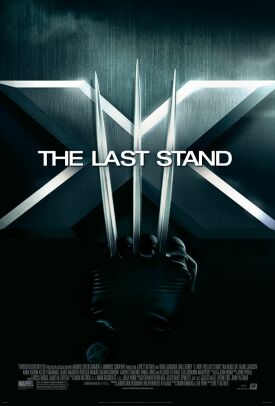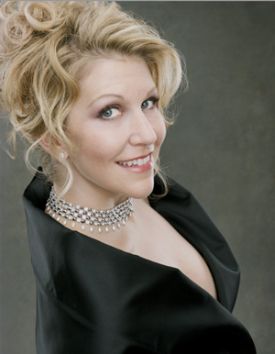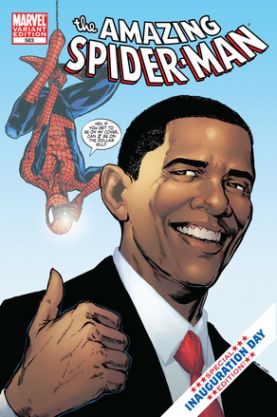Blockbuster Banality
From The American Spectator“You have an extraordinary gift, Jimmy,” says big, blue, bushy “Beast” (Kelsey Grammer), also known as Dr Hank McCoy, Secretary of Mutant Affairs in an American government of the “not too distant future.” Jimmy (Cameron Bright) does have an extraordinary gift too. He has just shown how, by his mere touch, he can make the Beast a beauty — or at least transform his furry paw into to a reassuringly human-looking appendage when he touches it. As Beast moves away from Jimmy, his hand reverts to beastliness, but by his tribute he identifies himself as one of the good mutants, in the terms established by Marvel Comics and its durable X-Men franchise, now brought to the screen for a third installment by Bret Ratner (director) and Simon Kinberg and Zak Penn (screenwriters), in the early summer blockbuster, X-Men: The Last Stand. The good mutants, in case this is all new to you, are those who are pro-mutant-choice and strong proponents of mutant multiculturalism. Like the saintly and telepathic Charles Xavier (Patrick Stewart), founder of an academy for mutants and general good guy, they strongly believe in a “vision of a world united.” In other words, they’re liberals.
On the other side are the bad mutants, led by Holocaust survivor “Magneto” (Ian McKellan), né Eric Lensherr, and his gang of black-shirted — or blue-torsoed — mutant-supremacists, including the world’s only “Class Five” mutant, Dr. Jean Grey (Famke Janssen). Jean has been dead but now is alive again, since “her powers wrapped her in a cocoon of telekinetic energy.” But being dead hasn’t agreed with her. She used to be a nice girl, but now she’s a raging storm of passion and appetite. Charles Xavier urges her: “Don’t let it” — meaning her power — “control you,” but, well, let’s just say he isn’t going to be urging restraint on anyone else any time soon, not unless he has powers equal to her own. Magneto is naturally glad to have such an ally as Jean — “You have no idea what she is capable of” — in his effort to resist mutant integration into normal society. This has been made possible by a single “cure” for all the mutants’ various genetic conditions, a cure that the Worthington pharmaceutical company has extracted from Jimmy, the biologically anti-mutant, in its laboratories on Alcatraz island. Some mutants may choose, as “Rogue” (Anna Paquin) does, to become “normal” by taking the cure.
As you can imagine, those with adaptations less desirable or useful than the ability to fly, to extrude fire, ice or sharp blades from one’s hands, to run through walls, bend metal telekinetically, or negate gravity are first in line to be “normal.” But even “Storm” (Halle Berry), one of the good, pro-choice mutants, wonders if it isn’t “cowardly” of them to take the cure “just to fit in.” Obviously, the analogies in all this are not limited to the political. The whole idea of mutants who feel they don’t “fit in” with others at the same time when they are feeling enormous pressures to fit in is an elaborate allegory of adolescence. Jean Grey’s disinclination to put any rein on her appetites is a familiar young-teenage phenomenon, as is the combination of self-consciousness, self-pity and a sneaking belief that one possesses powers that put one far above the ordinary. Like Jimmy, they possess extraordinary gifts, especially when they’ve just had a self-esteem lesson. And they too like to hide their true identities away beneath their super-hero nicknames,
In this they are also hinting at the double life of many gays. There is surely a special appeal to the latter in the idea of social pressure to accept a “cure” for what seems to them a genetic condition — even if science hasn’t yet located a specific “gay gene.” They, too, are a persecuted minority with, um, extraordinary gifts who are often attacked just for being different. Bet those gay-bashers would think twice about attacking Wolverine (Hugh Jackman) or Mystique (Rebecca Romijn). But wait just a minute! Though there are powerful power-fantasies here for everyone who has ever felt lonely or out of place — fantasies as powerful as the swirling vortex out of which the resurrected Jean Grey emerges — we can’t help but notice an interesting twist on the gay analogy. For those who in the movie are demonstrating, and who are also destroying bridges, cars, tanks and people — lots of people — to show their opposition to “the cure” are the bad guys. Something’s got to be wrong here, boss!
And it’s not the only thing either. Clearly, evolution is good. Even apart from its ability to undermine religious belief, you simply can’t be properly progressive without it. Yet it is the wicked Magneto who says to Jean: “When I saw you, I saw the next stage of evolution.” To his followers, whom he harangues in unmistakably Hitlerian fashion, he cries: “They want to give us the cure! I say we are the cure: the cure for that imperfect being called homo sapiens!” It seems there are strong progressive arguments on both sides. The good mutants offer us peace and love and non-violence and why-can’t-we-all-just-get-along with the earthbound representatives of good old homo sapiens. On the other hand, the ideology of the bad mutants recalls Nazi eugenics, which was in the forefront of progressivism as it was understood in the first half of the last century, and the compelling idea — at least for those who saw themselves as members of it — of the master race. Magneto, the Holocaust survivor, is thus the mirror-image of his nemesis, Hitler, in a way that echoes a common trope on the left, born of amateur psychologizing in the service of political tendentiousness, about the state of Israel and its leaders.
The good guys are good, then, because they recognize that corruptio optimi pessima est — which is of course a Judeo-Christian formulation born of the story of Lucifer, the light-bearer, who was the brightest of God’s angels until he fell through over-weening ambition. “Milton, thou shouldst be living at this hour,” as Wordsworth wrote of the crimes and corruptions of England in 1802. Yet somehow we may suspect we’re not exactly dealing with a Miltonic epic here. Though X-Men: The Last Stand may be as full of meaning as an egg is full of meat, it is essentially worthless meaning — a mixture of popular commonplaces and clichés and fantastical nonsense. Though its allegories and analogies are numerous, it hasn’t got anything to tell us about any of them, except that those who are weak like to pretend they are strong, while those who are strong like to dominate the weak; those who are bad often used to be good, and nearly always have reasons for being bad, while those who are good want others to be good, and to live in peace and harmony with others. What is the point of such a collection of banalities?
Its only real message is that summer blockbuster season is here again, and therefore it’s time for this critical Jimmy to have his annual but invariably futile shot at stripping the fashionable Übermenschen of their fantastical powers over America’s youth. And not only the ones so lovingly and painstakingly crafted by the makers of X-Men: The Last Stand, but the whole loathsome breed of superheroes. For they tell me — at the time of writing I have not yet had an opportunity to see the movie — that this year they are starting up the whole ghastly Superman cycle all over again with a film to be directed by Bryan Singer, the helmer of the last two X-men movies, as well as that other exercise in meaningful meaninglessness, The Usual Suspects (1995). “Superman Returns,” they’re calling it. But does Superman ever do anything but return? He’s always turning up, like a bad penny, and it’s time for some of us to say: go back to Krypton, you big lug! We don’t want your kind around here anymore, leaping tall buildings with a single bound and flying faster than a speeding bullet. You don’t fit in with us normal folks.
More importantly, you are an insult to the imaginations of our children — as witness the still-stunted imaginations of the millions of adults who avidly watch such rubbish too — and a threat to truth, justice and the American way. Some of us, at least, are sick of superheroes, and we’re beginning to suspect that so long as we have them, we won’t have the regular heroes that we need so badly. Stop me if you’ve heard this before, but it is helpful in understanding the real iniquity of the superhero if we remember Coleridge’s distinction, learned from Kant, between the imagination and the fancy. The imagination is the essential human faculty, the means by which we take the chaos of individual bits of information about the world we live in and turn it into understanding. The fancy — what we call fantasy — perverts and weakens the imagination by using it idly to conjure up alternative worlds. To feed the imagination with images of the real world is to nourish and nurture it, but fantasy — especially fantastical super-heroes — is the fatty, sugary snack that kills the appetite for better things and finally poisons us. Reality is the cure for this debilitating condition, and those of us who are parents should not be pro-choice about administering it.
Discover more from James Bowman
Subscribe to get the latest posts to your email.







